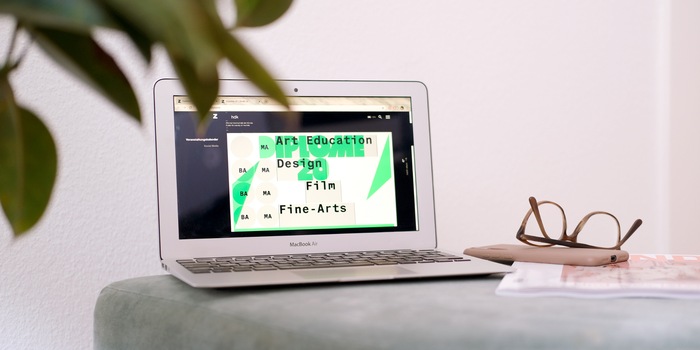
On the net: The final projects of the Zurich School of Art
For the first time in the history of Zurich University of the Arts, an exhibition will be held exclusively online: From 12 to 19 June 2020, students from the Design Department will be showing their final projects online.
Even though most museums are opening their doors again, art and culture are still available digitally. The various disciplines at Zurich University of the Arts have joined forces to offer students a digital stage this year. The online platform allows you to take part in various events. Rector Thomas D. Meier will kick things off with a video. He will guide you through this year's graduation projects at the vernissage on Friday 12 June at 5 pm.
The final projects from the Department of Design - including Trends & Identity, Interaction Design and Game Design - revolve around topics such as sustainability, innovative materials, gender and emerging technologies. From 12 June, you can join a guided tour of around one and a half hours by students via video conference or streaming and watch the Bachelor's and Master's Design Award Ceremony. Or you can try out the first final projects yourself: You can download some games from the Game Design department on the online platform from 19 June at 5 pm. "They will be hidden on the page in the form of virtual Easter eggs - a small bonus feature in computer programmes," reveals Maike Thies, a research assistant in the department. You can also get an insight into the development process of the theses there.
The latest gadgets from Swiss game design
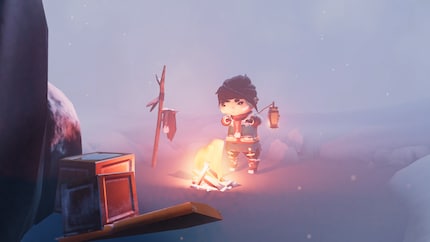
In "Vendari" by BA graduates Eileen Rüegg and Denise Hohl, you take on the role of Tabinga, a young girl who gets lost in a snowstorm. She needs your help to find her way home. Your search will take you through aesthetic landscapes that will satisfy your wanderlust.
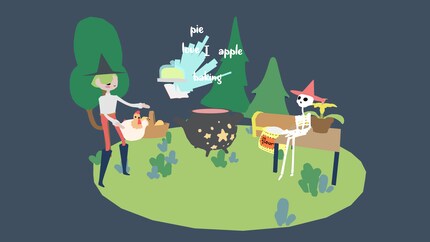
The puzzle game "Wizardly", designed by Teodora Pavlova Dimova, allows children between the ages of 8 and 12 to perform magic. To reach the next level, a puzzle and tasks have to be solved in English. The game uses Windows speech recognition software to track and correct the pronunciation of words and sentences.
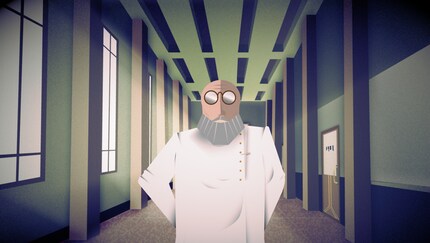
In "Sanatorium" by Sebastian Riedi, you examine patients and advise them on treatment. Your goal is to ensure that the treatment goes well so that you are recognised by the employees. The game is a kind of digital card game that takes place in gloomy yet appealing rooms.
New technologies and mediation strategies
Other final theses from the Interaction Design department also take a playful approach: Marcial Koch developed the "Hearo" toolbox for his bachelor's thesis, which plays with your hearing. What do you really hear in the room? What is just "fake"? As you explore, you will encounter surprising sounds.
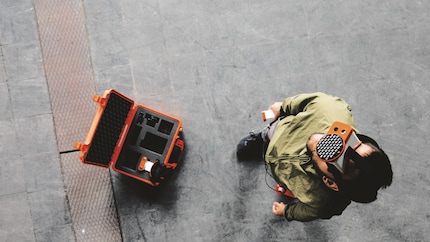
The "Rund Um" card set by Selina Fässler from the Trends & Identity department presents topics from the health sector in a simplified way. It is intended to support dialogue and decision-making and encourage discussion of illness and dying issues through appealing imagery.
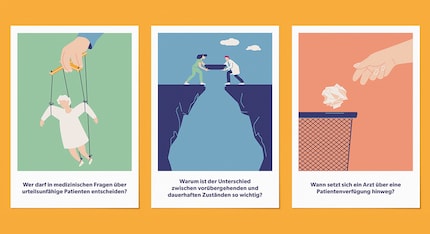
Despite the difficult situation due to the coronavirus pandemic, all students find a way to familiarise you with their work and get you involved. There is also the opportunity to get in direct contact for questions and answers. So it's worth "dropping by" and looking forward to it: In September, the diploma films of the film department, the diploma concerts of the jazz and pop students and the analogue diploma exhibition of the stage design/scenography students in the Bachelor Theatre will follow.
Like a cheerleader, I love celebrating good design and bringing you closer to everything furniture- and interior design- related. I regularly curate simple yet sophisticated interior ideas, report on trends and interview creative minds about their work.
From the latest iPhone to the return of 80s fashion. The editorial team will help you make sense of it all.
Show all